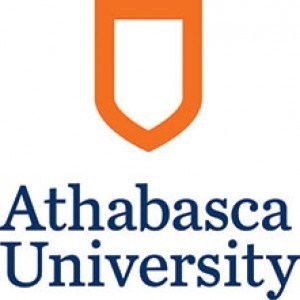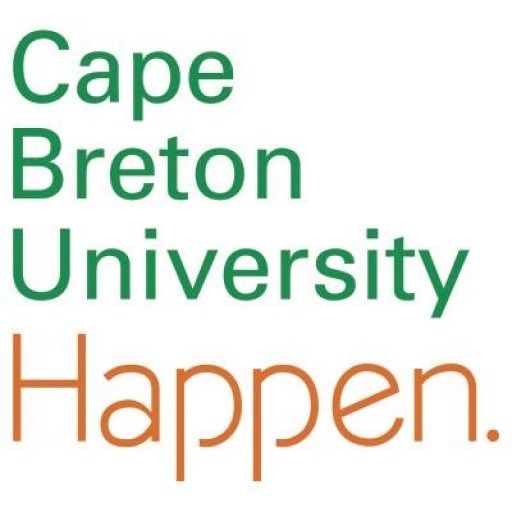Photos of university / #mcgillu
Early Music Performance at McGill University offers students a comprehensive and specialized education in the performance and interpretation of music from the Medieval, Renaissance, and Baroque periods. This graduate program is designed for musicians who seek to develop their expertise in historically informed performance practices, utilizing period instruments and performance techniques to recreate the authentic soundscapes of early music. Students engage in intensive individual instruction, ensemble collaborations, and scholarly research, gaining a deep understanding of the stylistic nuances and historical contexts that shape early music. The program emphasizes hands-on experience with period instruments such as the lute, viola da gamba, harpsichord, and transverse flute, allowing students to master the unique techniques required for authentic performance. Advanced coursework covers musicology, performance practice, and baroque improvisation, equipping graduates with both practical skills and scholarly insight. Students benefit from the university's outstanding faculty, which includes internationally recognized specialists in early music and performance practice. The program also encourages participation in master classes, workshops, and residencies with visiting artists and ensembles, providing valuable opportunities for networking and professional development. Graduates of the program are well-prepared for careers as soloists, ensemble performers, recording artists, or university faculty, contributing to the preservation and promotion of early music traditions. McGill University's strong institutional support, historic campus, and active music community create an enriching environment for aspiring early music performers. The program fosters a collaborative and innovative atmosphere, cultivating musicians who are both historically informed and creatively expressive, ready to make meaningful contributions to the field of early music.
The Early Music Performance program at McGill University offers students a comprehensive and immersive educational experience focused on the historical performance practices of music from the Medieval, Renaissance, Baroque, and Early Classical periods. Designed for passionate musicians seeking to specialize in early music, this program combines rigorous academic coursework with practical performance training, allowing students to develop a deep understanding of historical contexts, performance techniques, and stylistic nuances. Throughout the program, students engage in ensemble playing, masterclasses, and specialized seminars led by renowned faculty members who are experts in early music performance and research. The curriculum covers a broad spectrum of topics, including music theory and history, historical instruments, improvisation techniques, and the interpretation of early scores. Students also have access to state-of-the-art facilities and a wide array of early music ensembles, providing ample opportunities for live performance and collaboration. The program emphasizes developing a uniquely authentic approach to early music, blending scholarly research with hands-on practice to recreate historically informed performances. Graduates of this program are well-prepared to pursue careers as performers, educators, or researchers in the field of early music, equipped with both the technical skills and historical knowledge necessary for professional success. Additionally, students benefit from McGill’s vibrant musical community, access to comprehensive resources, and opportunities to participate in concerts, festivals, and collaborations with other artist groups. Overall, the Early Music Performance program offers an unparalleled environment for aspiring musicians dedicated to mastering the art and study of early music, fostering both artistic excellence and scholarly inquiry.
The Early Music Performance program at McGill University is designed to provide comprehensive training in the historically informed performance of early music. The program requires students to complete a series of coursework, practical training, and performance components to ensure a well-rounded education in this specialized field. Students are expected to undertake instrumental or vocal studies, focusing on performance practice from the Medieval, Renaissance, and Baroque periods. They must participate in ensemble classes that emphasize ensemble playing and historical performance techniques. Additionally, students are required to attend seminars, masterclasses, and lectures that explore the theoretical and contextual backgrounds of early music. Language studies in Latin, Italian, and other relevant languages are often recommended or required to assist with historical texts and scores. The program includes a research component, where students investigate historical performance practices, instruments, and repertoire, culminating in a thesis or recital. Practical requirements involve regular recital performances, participation in group recordings, and possibly internships or collaborative projects with other departments or external ensembles. Students must meet the minimum GPA and performance standards stipulated by the university and department. The program may also include interdisciplinary coursework, such as musicology or historical studies, to deepen the students' understanding of the cultural and social contexts of early music. By the completion of the program, students are expected to have developed advanced skills in both performance and research, enabling them to pursue professional careers as early music specialists, performers, or educators. The program duration is typically structured over two years of full-time study, with opportunities for specialization and independent projects. Throughout their studies, students have access to McGill's state-of-the-art facilities, including practice rooms, recording studios, and specialized libraries. Admissions criteria generally include auditions, academic records, and demonstration of prior musical competency. Overall, the program aims to prepare graduates to perform with authenticity and scholarly insight, contributing to the preservation and dissemination of early music.
The Early Music Performance program at McGill University offers a range of financing options to support students throughout their academic journey. Prospective students are encouraged to explore scholarships, bursaries, and financial aid opportunities available through both the university and external sources. McGill University provides merit-based scholarships for outstanding applicants, which are typically awarded based on academic achievements, audition performance, and potential contribution to the university's musical community. Additionally, the university has need-based bursaries designed to assist students demonstrating financial need, ensuring that talented individuals can pursue their studies without undue financial hardship.
International students enrolled in the Early Music Performance program have access to specific scholarships aimed at fostering diversity and supporting their educational pursuits. Moreover, students are encouraged to apply for external funding sources, including government grants, private foundations, and musical organizations that offer support to students pursuing specialized music degrees. Work-study programs are also available, allowing students to gain practical experience and earn income while studying, which can significantly offset their educational expenses.
The university provides comprehensive financial aid counseling to help students navigate their options and complete applications for various funding opportunities. It is recommended that students begin exploring financial resources early in their academic planning to maximize their chances of securing necessary funds. Besides scholarships and bursaries, students may also benefit from fast-track loan programs, which enable them to finance their education with manageable repayment terms post-graduation.
The Early Music Performance program emphasizes accessibility and inclusivity, making financial support an integral part of their commitment to fostering a diverse and vibrant musical community. For detailed information on the application procedures, eligibility criteria, and deadlines, students should consult the McGill University Financial Aid Office and the specific program's admissions webpage. Overall, McGill's robust financial support system aims to reduce economic barriers, enabling talented musicians to focus on their craft and achieve excellence in early music performance.
The Early Music Performance program at McGill University offers students an opportunity to develop their skills and knowledge in the specialized field of early music, focusing on periods from medieval times through to the Baroque era. This program is designed for students who have a solid foundation in performance and wish to explore historically informed techniques and approaches to music from these earlier periods. The curriculum typically includes coursework in historical performance practice, period instrument techniques, musicology, and ensemble playing. Students may have the opportunity to work closely with faculty members who are experts in the field of early music, gaining practical experience through concerts and recordings.
The program aims to prepare students for professional careers as early music performers, educators, or researchers. It emphasizes the importance of understanding the historical and cultural contexts of the music studied, encouraging an approach that combines scholarly research with practical musicianship. Students might be expected to participate in specialized ensembles that focus on performing early music on appropriate instruments, which can include harpsichord, continuo, recorders, viols, and other period instruments.
Given McGill University's strong emphasis on research and performance, students in the program may also have access to the university’s extensive resources, including libraries, archival collections, and performance venues. The faculty involved often have international reputations, providing mentorship and guidance rooted in both scholarly expertise and practical experience. Upon completion, graduates of the Early Music Performance program at McGill are well positioned to pursue careers as performers, music educators, or further their studies through advanced degrees.
This program’s structure likely includes individual instruction, group rehearsals, coursework in music history and theory, and opportunities for public performances. The program fosters an environment of collaboration, encouraging students to learn from each other and to engage with a broad repertoire. Overall, the Early Music Performance program aims to cultivate musicians who are not only skilled performers but also knowledgeable scholars of early music, able to interpret historically informed performances authentically and artistically.


